|
The Heidelberg Catechism: Lord's Day 29
78. Question: Are then the bread and wine changed into the real body and blood of Christ? Answer: No. Just as the water of baptism is not changed into the blood of Christ and is not the washing away of sins itself but is simply God's sign and pledge,[1] so also the bread in the Lord's supper does not become the body of Christ itself,[2] although it is called Christ's body[3] in keeping with the nature and usage of sacraments.[4] [1] Eph. 5:26; Tit. 3:5. [2] Matt. 26:26-29. [3] I Cor. 10:16, 17; 11:26-28. [4] Gen. 17:10, 11; Ex. 12:11, 13; I Cor. 10:3, 4; I Pet. 3:21. 79. Question: Why then does Christ call the bread His body and the cup His blood, or the new covenant in His blood, and why does Paul speak of a participation in the body and blood of Christ? Answer: Christ speaks in this way for a good reason: He wants to teach us by His supper that as bread and wine sustain us in this temporal life, so His crucified body and shed blood are true food and drink for our souls to eternal life.[1] But, even more important, He wants to assure us by this visible sign and pledge, first, that through the working of the Holy Spirit we share in His true body and blood as surely as we receive with our mouth these holy signs in remembrance of Him,[2] and, second, that all His suffering and obedience are as certainly ours as if we personally had suffered and paid for our sins.[3] [1] John 6:51, 55. [2] I Cor. 10:16, 17; 11:26. [3] Rom. 6:5-11.
0 Comments
The Heidelberg Catechism: Lord's Day 28
75. Question: How does the Lord's Supper signify and seal to you that you share in Christ's one sacrifice on the cross and in all His gifts? Answer: In this way: Christ has commanded me and all believers to eat of this broken bread and drink of this cup in remembrance of Him. With this command He gave these promises:[1] First, as surely as I see with my eyes the bread of the Lord broken for me and the cup given to me, so surely was His body offered for me and His blood poured out for me on the cross. Second, as surely as I receive from the hand of the minister and taste with my mouth the bread and the cup of the Lord as sure signs of Christ's body and blood, so surely does He Himself nourish and refresh my soul to everlasting life with His crucified body and shed blood. [1] Matt. 26:26-28; Mark 14:22-24; Luke 22:19, 20; I Cor. 11:23-25. 76. Question: What does it mean to eat the crucified body of Christ and to drink His shed blood? Answer: First, to accept with a believing heart all the suffering and the death of Christ, and so receive forgiveness of sins and life eternal.[1] Second, to be united more and more to His sacred body through the Holy Spirit, who lives both in Christ and in us.[2] Therefore, although Christ is in heaven[3] and we are on earth, yet we are flesh of His flesh and bone of His bones,[4] and we forever live and are governed by one Spirit, as the members of our body are by one soul.[5] [1] John 6:35, 40, 50-54. [2] John 6:55, 56; I Cor. 12:13. [3] Acts 1:9-11; 3:21; I Cor. 11:26; Col. 3:1. [4] I Cor. 6:15, 17; Eph. 5:29, 30; I John 4:13. [5] John 6:56-58; 15:1-6; Eph. 4:15, 16; I John 3:24. 77. Question: Where has Christ promised that He will nourish and refresh believers with His body and blood as surely as they eat of this broken bread and drink of this cup? Answer: In the institution of the Lord's supper: The Lord Jesus on the night when He was betrayed took bread, and when He had given thanks, He broke it and said, "This is my body which is for you. Do this in remembrance of me." In the same way also the cup, after supper, saying, "Do this, as often as you drink it, in remembrance of me." For as often as you eat this bread and drink the cup, you proclaim the Lord's death until He comes (I Corinthians 11:23-26). This promise is repeated by Paul where he says: The cup of blessing which we bless, is it not a participation in the blood of Christ? The bread which we break, is it not a participation in the body of Christ? Because there is one bread, we who are many are one body, for we all partake of the one bread (I Corinthians 10:16, 17). The Heidelberg Catechism: Lord's Day 24
62. Question: But why can our good works not be our righteousness before God, or at least a part of it? Answer: Because the righteousness which can stand before God's judgment must be absolutely perfect and in complete agreement with the law of God,[1] whereas even our best works in this life are all imperfect and defiled with sin.[2] [1] Deut. 27:26; Gal. 3:10. [2] Is. 64:6. 63. Question: But do our good works earn nothing, even though God promises to reward them in this life and the next? Answer: This reward is not earned[1]; it is a gift of grace.[2] [1] Matt. 5:12; Heb. 11:6. [2] Luke 17:10; II Tim. 4:7, 8. 64. Question: Does this teaching not make people careless and wicked? Answer: No. It is impossible that those grafted into Christ by true faith should not bring forth fruits of thankfulness.[1] [1] Matt. 7:18; Luke 6:43-45; John 15:5. The Heidelberg Catechism: Lord's Day 21
54. Question: What do you believe concerning the holy catholic Christian church? Answer: I believe that the Son of God,[1] out of the whole human race,[2] from the beginning of the world to its end,[3] gathers, defends, and preserves for Himself, [4] by His Spirit and Word,[5] in the unity of the true faith,[6] a church chosen to everlasting life.[7] And I believe that I am[8] and forever shall remain a living member of it.[9] [1] John 10:11; Acts 20:28; Eph. 4:11-13; Col. 1:18. [2] Gen. 26:4; Rev. 5:9. [3] Is. 59:21; I Cor. 11:26. [4] Ps. 129:1-5; Matt. 16:18; John 10:28-30. [5] Rom. 1:16; 10:14-17; Eph. 5:26. [6] Acts 2:42-47; Eph. 4:1-6. [7] Rom. 8:29; Eph. 1:3-14. [8] I John 3:14, 19-21. [9] Ps. 23:6; John 10:27, 28; I Cor. 1:4-9; I Pet. 1:3-5. 55. Question: What do you understand by the communion of saints? Answer: First, that believers, all and everyone, as members of Christ have communion with Him and share in all His treasures and gifts.[1] Second, that everyone is duty-bound to use his gifts readily and cheerfully for the benefit and well-being of the other members.[2] [1] Rom. 8:32; I Cor. 6:17; 12:4-7, 12, 13; I John 1:3. [2] Rom. 12:4-8; I Cor. 12:20-27; 13:1-7; Phil. 2:4-8. 56. Question: What do you believe concerning the forgiveness of sins? Answer: I believe that God, because of Christ's satisfaction, will no more remember my sins,[1] nor my sinful nature, against which I have to struggle all my life,[2] but He will graciously grant me the righteousness of Christ, that I may never come into condemnation.[3] [1] Ps. 103:3, 4, 10, 12; Mic. 7:18, 19; II Cor. 5:18-21; I John 1:7; 2:2. [2] Rom. 7:21-25. [3] John 3:17, 18; 5:24; Rom. 8:1, 2. The Heidelberg Catechism: Lord's Day 20
53. Question: What do you believe concerning the Holy Spirit? Answer: First, He is, together with the Father and the Son, true and eternal God.[1] Second, He is also given to me,[2] to make me by true faith share in Christ and all His benefits,[3] to comfort me,[4] and to remain with me forever.[5] [1] Gen. 1:1, 2; Matt. 28:19; Acts 5:3, 4; I Cor. 3:16. [2] I Cor. 6:19; II Cor. 1:21, 22; Gal. 4:6; Eph. 1:13. [3] Gal. 3:14; I Pet. 1:2. [4] John 15:26; Acts 9:31. [5] John 14:16, 17; I Pet. 4:14. The Heidelberg Catechism: Lord's Day 19
50. Question: Why is it added, ‘And sits at the right hand of God’? Answer: Christ ascended into heaven to manifest Himself there as Head of His Church,[1] through whom the Father governs all things.[2] [1] Eph. 1:20-23; Col. 1:18. [2] Matt. 28:18; John 5:22, 23. 51. Question: How does the glory of Christ, our Head, benefit us? Answer: First, by His Holy Spirit He pours out heavenly gifts upon us, His members.[1] Second, by His power He defends and preserves us against all enemies.[2] [1] Acts 2:33; Eph. 4:7-12. [2] Ps. 2:9; 110:1, 2; John 10:27-30; Rev. 19:11-16. 52. Question: What comfort is it to you that Christ will come to judge the living and the dead? Answer: In all my sorrow and persecution I lift up my head and eagerly await as judge from heaven the very same person who before has submitted Himself to the judgment of God for my sake, and has removed all the curse from me.[1] He will cast all His and my enemies into everlasting condemnation, but He will take me and all His chosen ones to Himself into heavenly joy and glory.[2] [1] Luke 21:28; Rom. 8:22-25; Phil. 3:20,21; Tit. 2:13, 14. [2] Matt. 25:31-46; I Thess. 4:16, 17; II Thess. 1:6-10. The Heidelberg Catechism: Lord's Day 18
46. Question: What do you confess when you say, He ascended into heaven? Answer: That Christ, before the eyes of His disciples, was taken up from the earth into heaven,[1] and that He is there for our benefit[2] until He comes again to judge the living and the dead.[3] [1] Mark 16:19; Luke 24:50, 51; Acts 1:9-11. [2] Rom. 8:34; Heb. 4:14; 7:23-25; 9:24. [3] Matt. 24:30; Acts 1:11. 47. Question: Is Christ, then, not with us until the end of the world, as He has promised us?[1] Answer: Christ is true man and true God. With respect to His human nature He is no longer on earth,[2] but with respect to His divinity, majesty, grace, and Spirit He is never absent from us.[3] [1] Matt. 28:20. [2] Matt. 26:11; John 16:28; 17:11; Acts 3:19-21; Heb. 8:4. [3] Matt. 28:18-20; John 14:16-19; 16:13. 48. Question: But are the two natures in Christ not separated from each other if His human nature is not present wherever His divinity is? Answer: Not at all, for His divinity has no limits and is present everywhere.[1] So it must follow that His divinity is indeed beyond the human nature which He has taken on and nevertheless is within this human nature and remains personally united with it.[2] [1] Jer. 23:23, 24; Acts 7:48, 49. [2] John 1:14; 3:13; Col. 2:9. 49. Question: How does Christ's ascension into heaven benefit us? Answer: First, He is our Advocate in heaven before His Father.[1] Second, we have our flesh in heaven as a sure pledge that He, our Head, will also take us, His members, up to Himself.[2] Third, He sends us His Spirit as a counter-pledge,[3] by whose power we seek the things that are above, where Christ is, seated at the right hand of God, and not the things that are on earth.[4] [1] Rom. 8:34; I John 2:1. [2] John 14:2; 17:24; Eph. 2:4-6. [3] John 14:16; Acts 2:33; II Cor. 1:21, 22; 5:5. [4] Col. 3:1-4. The Heidelberg Catechism: Lord's Day 17
45. Question: How does Christ's resurrection benefit us? Answer: First, by His resurrection He has overcome death, so that He could make us share in the righteousness which He had obtained for us by His death.[1] Second, by His power we too are raised up to a new life.[2] Third, Christ's resurrection is to us a sure pledge of our glorious resurrection.[3] [1] Rom. 4:25; I Cor. 15:16-20; I Pet. 1:3-5. [2] Rom. 6:5-11; Eph. 2:4-6; Col. 3:1-4. [3] Rom. 8:11; I Cor. 15:12-23; Phil. 3:20, 21. A Hard Question
For eleven years I was privileged to serve on the Board of Ordained Ministry for my denomination. The responsibility of the Board is to work with people who are candidates for ordained ministry, helping them navigate their way through the long process. From assisting them in understanding God’s call in their lives to celebrating with them at their ordination, it was a rewarding experience. Broadly speaking, the areas the Board focuses on are a candidate’s call to ministry, pastoral and leadership skills, psychological and spiritual well-being, preaching and teaching abilities, and theological soundness. My particular position was to serve with the group that assessed a candidate’s theology. We were responsible for reading a candidate’s theological paperwork and then interviewing him or her in person. One of the tough issues each candidate had to face is the topic we will look at in this chapter: The Kingdom of God? What is it? How are we to understand it? Would you be able to answer those two questions? Correctly? It’s a hard subject, one that many Christians have not spent a great deal of time thinking about. Some candidates struggled with it as well. The Focus of Jesus Maybe you’re wondering why, if it is such a hard question to answer, would we ask the candidates about the Kingdom of God. That is not a hard question to answer. The reason candidates are asked about the Kingdom of God is because it was the central theme of Jesus’ ministry. Everything he preached on, did, and taught somehow related to the Kingdom of God. Here are some examples of Jesus’ focus on the Kingdom of God in Matthew’s Gospel alone. Matthew 13:24 – Jesus told them another parable: “The kingdom of heaven is like a man who sowed good seed in his field. Matthew 6:33 – But seek first his kingdom and his righteousness, and all these things will be given to you as well. Matthew 5:3 – “Blessed are the poor in spirit, for theirs is the kingdom of heaven. Matthew 13:31 – He told them another parable: “The kingdom of heaven is like a mustard seed, which a man took and planted in his field. Matthew 13:33 – He told them still another parable: “The kingdom of heaven is like yeast that a woman took and mixed into a large amount of flour until it worked all through the dough.” Matthew 13:44 – “The kingdom of heaven is like treasure hidden in a field. When a man found it, he hid it again, and then in his joy went and sold all he had and bought that field. Matthew 13:47 – “Once again, the kingdom of heaven is like a net that was let down into the lake and caught all kinds of fish. Jesus referred to the Kingdom over thirty times in Matthew’s Gospel alone. That certainly suggests this was an important topic for our Lord. Jesus Begins His Ministry Our text finds us at the beginning of Jesus’ public ministry. Matthew 4:12 reports that Jesus heard that John the Baptist had been put in prison. We do not know how long it was after Jesus heard this news, but we learn Jesus returned to Galilee. This is key because Jesus was moving from something of a wilderness setting to a much more highly populated area. It was one in which he would be able to minister to a greater number of people. Many roads traveled to and from Galilee. Many people lived there. The opportunity to reach more people with his message would increase considerably. Interestingly, Matthew suggested this move to Galilee was a fulfillment of a prophecy found in Isaiah 9. That’s why he wrote in Matthew 4:13-16, Leaving Nazareth, he went and lived in Capernaum, which was by the lake in the area of Zebulun and Naphtali– [14] to fulfill what was said through the prophet Isaiah: [15] “Land of Zebulun and land of Naphtali, the way to the sea, along the Jordan, Galilee of the Gentiles– [16] the people living in darkness have seen a great light; on those living in the land of the shadow of death a light has dawned.” Then we read these important words in verse 17, From that time on Jesus began to preach, “Repent, for the kingdom of heaven is near.” That phrase, “From that time on…” is important. Matthew highlighted that Jesus was beginning his public ministry, one that would eventually take him to the Cross. Repent And what was the message of Jesus? “Repent, for the kingdom of heaven is near.” You have likely heard the word “Repent.” When we hear the word, repent, we often think of being sorry for something we’ve done and then promising never to do it again. And certainly there’s an element of that here. However, in the Bible, the word means more than that. The word repent carries a couple of essential ideas with it. A Change of Thinking First it denotes changing the way a person thinks about something. Instead of thinking about something the way “the world” does, in a self-centered, rebellious sort of way, repentance means agreement with what God has said about that issue. The Sermon on the Mount is a marvelous exposition or teaching on this very thing. Jesus teaches us the fallen world thinks one way, but he calls his followers to think another way, his way. A Change of Life In the Old Testament, and the way Jesus was using the word here, repent means more than a change in one’s thinking. It also means a change in one’s behavior. One commentator said by “repentance,” Jesus meant, “A radical change of mind and heart that leads to a complete turnabout of life.” (William Hendrickson, The Gospel of Matthew, p. 197) Again, the Sermon on the Mount is focused on what this “radical change of mind and heart and complete turnabout of life” looks like. Jesus also seemed to stress an urgency in his call to repentance. But what’s the hurry? Why the sense of urgency to repent? Because, Jesus stressed, the kingdom of heaven is near. What is the Kingdom of God? What is Jesus referring to here? What is this “kingdom of heaven” that is near? The Kingdom of Heaven, or Kingdom of God, is the sovereign and gracious reign and rule of God. Jesus doesn’t refer to the Kingdom as a place, in the sense of a geographical location. Instead, the Kingdom is God’s rule and reign. It’s wherever God’s will is being proclaimed and done. It’s wherever his influence is in effect. That’s why Jesus taught us to pray, for example, in Matthew 6:10, your kingdom come, your will be done on earth as it is in heaven. The Kingdom of God is manifested in the hearts, minds, and lives of those who have bowed their knees to the King of the Kingdom, the Lord Jesus Christ. Wherever the loyal subjects of the King serve him, there you’ll find the Kingdom advancing, being extended into every sphere of life. The Church and the Kingdom aren’t identical, but the Church - followers of the Lord Jesus - are the primary agents who spread God’s Kingdom. Examples What are some examples of the Kingdom breaking into our fallen, broken, and sinful world?
The rule and reign of God, saturated in his grace, empowered by his sovereign Spirit, and directed by his will can be found wherever God’s people are at work for his sake and in his name. United Methodists believe in God’s prevenient grace, the grace of God that goes ever before us, drawing us to Christ. We therefore hope and pray that even in those places where the name of Christ is not yet known or proclaimed, God’s prevenient grace is drawing people to the King of the Kingdom. The Good News of the Kingdom In verse 23, Matthew wrote, Jesus went throughout Galilee, teaching in their synagogues, preaching the good news of the kingdom, and healing every disease and sickness among the people. (emphasis mine) What does Matthew say Jesus is preaching here? The good news of the Kingdom. The phrase “good news” is where we get our word “gospel.” The Kingdom of God ultimately cannot be understood apart from the good news or gospel of Jesus Christ. The good news is what God has done in and through his Son to reconcile sinful, lost and broken people to himself. God sent Jesus, as his name implies, to save his people from their sin. The Kingdom cannot be properly understood apart from this. God’s Kingdom turns all other kingdoms upside-down and not only offers salvation through Christ, but also sets patterns, attitudes, and behaviors for citizens of the Kingdom. Already and Not Yet The coming of Jesus ushered in the Kingdom of God. Yet the Kingdom will not be fully consummated and enjoyed until Christ returns and we’re gathered to him. Theologians call this living between the “already” and the “not yet.” The Kingdom is present in our midst, and yet, it is not all it will one day be. This “not yet” aspect of the Kingdom is perhaps why Jesus, while he was still with his disciples at the Passover meal, told them, Luke 22:15-18 – “…I have eagerly desired to eat this Passover with you before I suffer. [16] For I tell you, I will not eat it again until it finds fulfillment in the kingdom of God.” [17] After taking the cup, he gave thanks and said, “Take this and divide it among you. [18] For I tell you I will not drink again of the fruit of the vine until the kingdom of God comes.” (Emphases mine) Living In-Between Part of our understanding of the Lord’s Supper includes not only looking back to what Christ did for us, but it also emphasizes looking forward, forward to that day when we’ll dine with our King at the heavenly banquet, he’s graciously prepared for us. Until then, Christ’s faithful subjects are called to live in this in-between time, representing their King and extending his Kingdom into every sphere of life. Walking Points
The Heidelberg Catechism: Lord's Day 15
37. Question: What do you confess when you say that He suffered? Answer: During all the time He lived on earth, but especially at the end, Christ bore in body and soul the wrath of God against the sin of the whole human race.[1] Thus, by His suffering, as the only atoning sacrifice,[2] He has redeemed our body and soul from everlasting damnation,[3] and obtained for us the grace of God, righteousness, and eternal life.[4] [1] Is. 53; I Tim. 2:6; I Pet. 2:24; 3:18. [2] Rom. 3:25; I Cor. 5:7; Eph. 5:2; Heb. 10:14; I John 2:2; 4:10. [3] Rom. 8:1-4; Gal. 3:13; Col. 1:13; Heb. 9:12; I Pet 1:18, 19. [4] John 3:16; Rom. 3:24-26; II Cor. 5:21; Heb. 9:15. 38. Question: Why did He suffer under Pontius Pilate as judge? Answer: Though innocent, Christ was condemned by an earthly judge,[1] and so He freed us from the severe judgment of God that was to fall on us.[2] [1] Luke 23:13-24; John 19:4, 12-16. [2] Is. 53:4, 5; II Cor. 5:21; Gal. 3:13. 39. Question: Does it have a special meaning that Christ was crucified and did not die in a different way? Answer: Yes. Thereby I am assured that He took upon Himself the curse which lay on me, for a crucified one was cursed by God.[1] [1] Deut. 21:23; Gal. 3:13. |
Stand FirmBe on your guard; stand firm in the faith; be courageous; be strong. Do everything in love. Categories
All
Archives
July 2023
|
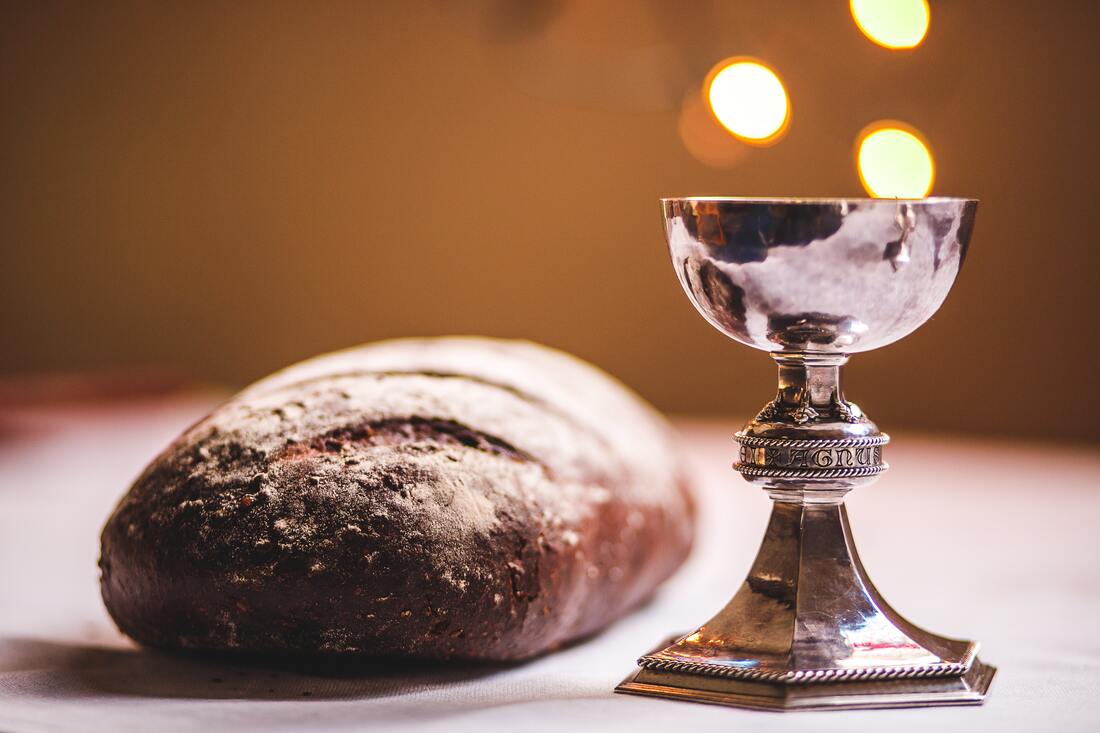
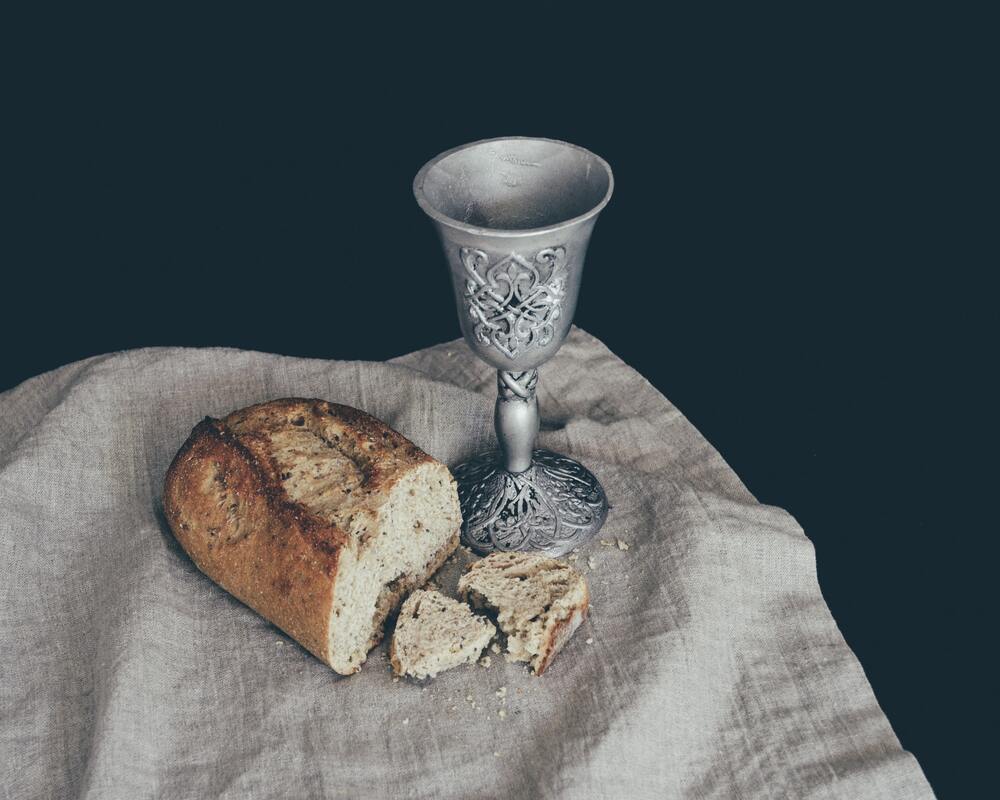

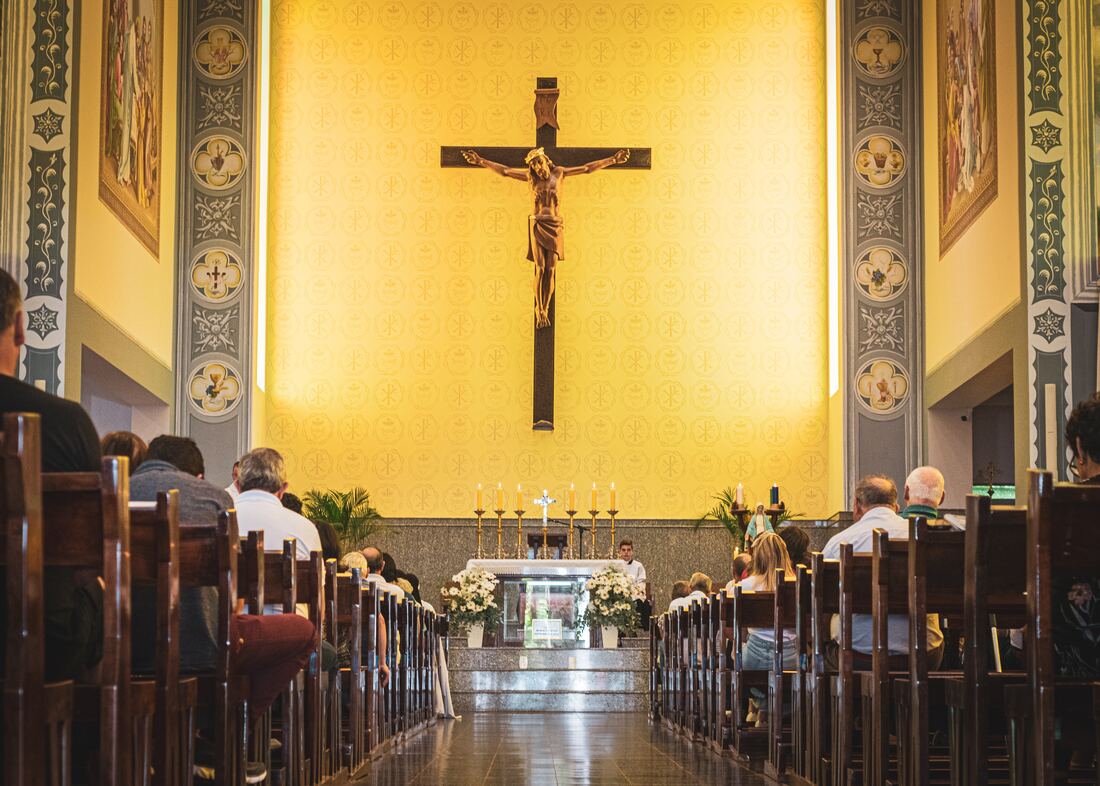



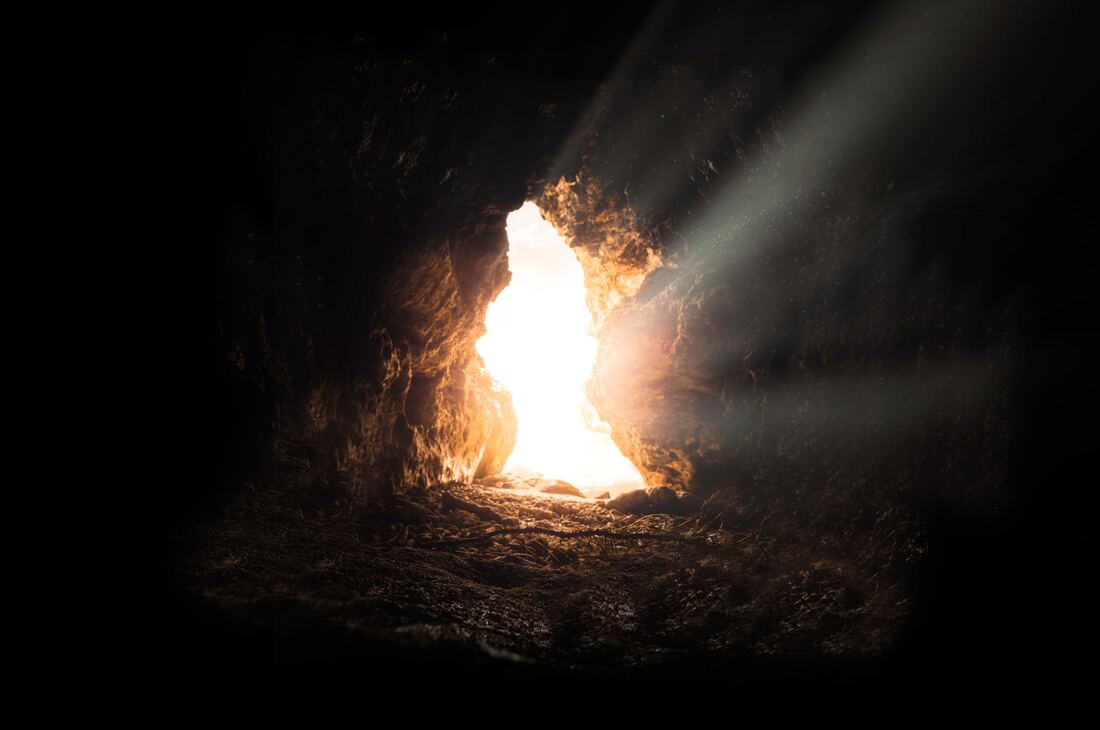

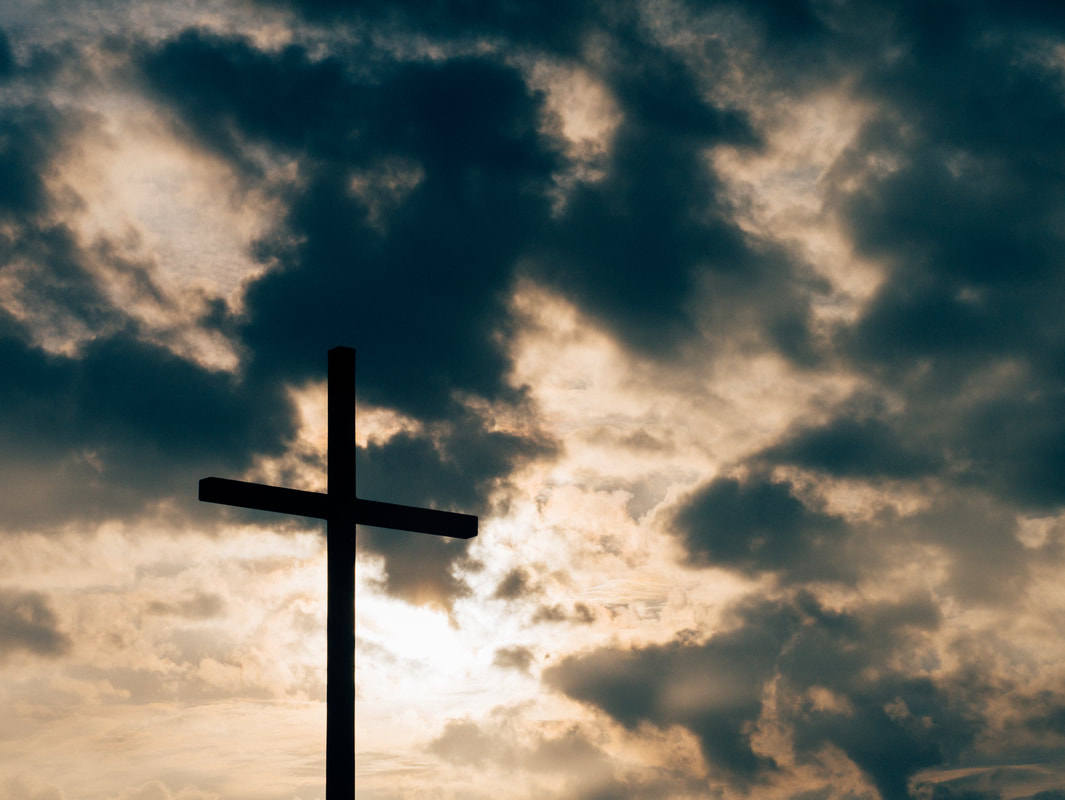
 RSS Feed
RSS Feed